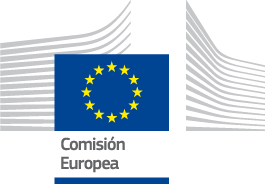

Good Practice Project
Consuming Salicornia (commonly known as pickleweed) has recently become popular in Portugal. Still, only a few organic farms are growing this species. With the aim of filling this gap in the market, Màrcia Pinto, a biologist working on salt marshes for over 10 years, founded “Salina Greens”. She is the first to start cultivating Salicornia applying biodynamic agriculture methods.
Through her project, Márcia aims to both boost the local economy and help preserve the fragile ecosystem of the salt marshes. Most of the marshes (covering hundreds of hectares in the region), that were previously used for the production of sea salt, have been abandoned over the last decades. Without human intervention, these biodiversity hotspots could well disappear. Growing Salicornia represents a sustainable solution to the marshes’ degradation. In addition, this plant shows high resistance to climate change.
With the support of FLAG ADREPES, “Salina Greens” applied for EMFF funding to buy equipment for drying and grinding the fresh plants. These steps are essential to sell the plants for cosmetics or pharmaceuticals, hereby adding value to the farming activity. Starting in 2016 with 600 m² of cultivated land and doubling in size the following year, the objective of “Salina Greens” is to cultivate 1 ha (i.e. 10.000 m2) of salt marshes by 2021. This would represent an annual harvest of 50 tonnes of Salicornia.
Over the past few years, “Salina Greens” has built up trade relations with different Portuguese supermarkets, as well as with some international cosmetics and pharmaceutical companies. Moreover, the company developed partnerships with the foundation that manages the local marshes and a scientific group from the University of Lisbon that specialises in halophytic plants (plants growing on salt marshes). This allows “Salina Greens” to deepen its knowledge of the plants. As the topic has recently become quite trendy, the company expects more research groups to start cooperating with “Salina Greens”.
FLAG ADREPES helped this very young and small company to prepare the application for funding and assisted in the communication with the national authorities. During the project implementation phase, the FLAG was also able to support the company thanks to its longtime experience in project management.
With the EMFF funding, “Salina Greens” was able to invest in equipment needed for the biodynamic production of Salicorna, as well as for processing and distribution, such as a solar dryer and a refrigerated vehicle. The fresh products have gradually been introduced into Portuguese supermarkets. Furthermore, the dried products are starting to get exported; for example, to the cosmetics company LUSH buying several dried Salicorna products. “Salina Greens” has also started cooperating with a local organic restaurant.
Even though salt marshes can’t be found everywhere across Europe, this project encourages local actors to have a closer look at their surroundings and develop innovative concepts to create value out of allegedly unproductive sites. This project is a good example of how connecting economic activity with environment protection can benefit communities.
Establishing a new business can be challenging. In the case of “Salina Greens”, the most difficult part was to obtain permits to launch the company. Neither the Ministry of Agriculture nor the Ministry of Fisheries were able to provide proper information on the applicable legal framework. Hence, it was crucial for Márcia Pinto to keep up and establish ties with local partners to demonstrate her willingness to find solutions to the complexity of the funding system.
Contribution to CLLD objective: adding value, creating jobs, attracting young people and promoting innovation at all stages of the supply chain of fishery and aquaculture products.
| Total project cost | €82 797 |
|---|---|
| FLAG grant |
€82 797
|
| Beneficiary contribution |
€33 119 |
| Timeframe of implementation | From Mar 2017 to Dec 2019 |
|---|---|
| Sea Basins |
|
| Type of area |
|
| Theme |